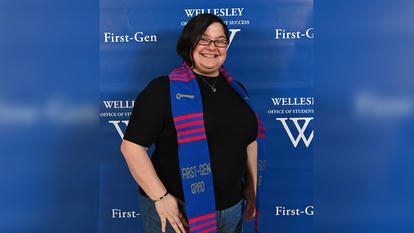Public Health Expert Camara Phyllis Jones ’76 to Address Racism and Health Inequity in Kenner Lecture

Camara Phyllis Jones ’76, senior fellow at the Satcher Health Leadership Institute and the Cardiovascular Research Institute at the Morehouse School of Medicine, will deliver the 2017 Hyunja Laskin ’88 and Jeffrey Kenner Lecture today, February 27. In her talk, “Achieving Health Equity: Tools for a National Campaign Against Racism,” Jones will examine how racism stands in the way of health equity, which is the assurance of the conditions needed for optimal health and well-being.
As Jones, who is the immediate past president of the American Public Health Association, told the Kaiser Permanente Institute for Health Policy, “Health equity has to be a process,” with ongoing efforts to address the results of racism, which gives unfair disadvantages to some individuals and communities and unfair advantages to others, sapping “the strength of the whole society by wasting human resources.”
To facilitate change, people must understand what racism is and how it works. “When I talk about racism, I’m talking about a system, not an individual character flaw or a personal moral failing,” Jones said. “It is a system of power that structures opportunity (education, housing, jobs, justice) and assigns value (worthy or unworthy, full of potential or full of menace) based on so-called ‘race,’ the social interpretation of how we look.”
Jones, a family physician and epidemiologist, has developed a framework for understanding racism on three levels: institutionalized, personally mediated, and internalized, as she explained in an article she wrote for the American Journal of Public Health several years ago.
Institutionalized racism, which results in unequal access to resources such as quality education, housing, and medical facilities, is the most fundamental of the three and must be addressed for important change to occur, Jones wrote. If that happens, then personally mediated racism—discrimination or prejudice toward other groups—and internalized racism—acceptance of negative views about a group’s abilities and intrinsic worth—“may cure themselves over time.”
To illustrate the effects of racism, Jones often uses allegories or stories, such as The Gardener’s Tale, which she shared in the American Journal of Public Health article and in a TEDx talk she gave in 2014.
In The Gardener’s Tale, a gardener who prefers red flowers to pink flowers plants red flower seeds in a box filled with rich, fertile soil and plants pink seeds in a box filled with poor, rocky soil. The red flowers grow and flourish, while only the strongest of the pink flowers survive, reaching just middling height. The gardener sees the same results every year.
After a decade, the gardener concludes that she was right to prefer red flowers, an attitude that she will pass down to her children unless someone challenges her views and convinces her to improve the poor quality of the soil for pink flowers.
“In the United States, the gardener is our government. As the story illustrates, there is particular danger when this gardener is not concerned with equity,” Jones writes.
In the Kenner lecture, “Dr. Jones will give us clear tools for recognizing how racism operates in relation to health as well as strategies for achieving health equity,” said Charlene A. Galarneau, assistant professor of women’s and gender studies at Wellesley, who organized the event with the support of the Albright Institute for Global Affairs. “Achieving health equity is intimately tied to achieving equity in so many realms of life.”
The lecture will be held in Tishman Commons at 4:30 pm today and is open to the Wellesley community and the public.
Jones will also take part in other campus events, including a student lunch today, organized by MAPS (Minority Association of Premedical Students) and Harambee House; a faculty breakfast conversation tomorrow, February 28, organized by PPLA (Project on Public Leadership and Action); and a discussion in Galarneau’s U.S. Public Health course.
“Dr. Jones’ work is directly relevant to the Wellesley campus and our values as a College,” said Galarneau. “Her dynamic teaching gives audiences words and concepts to help them understand and advance anti-racism work, which is to say, health equity work.”



